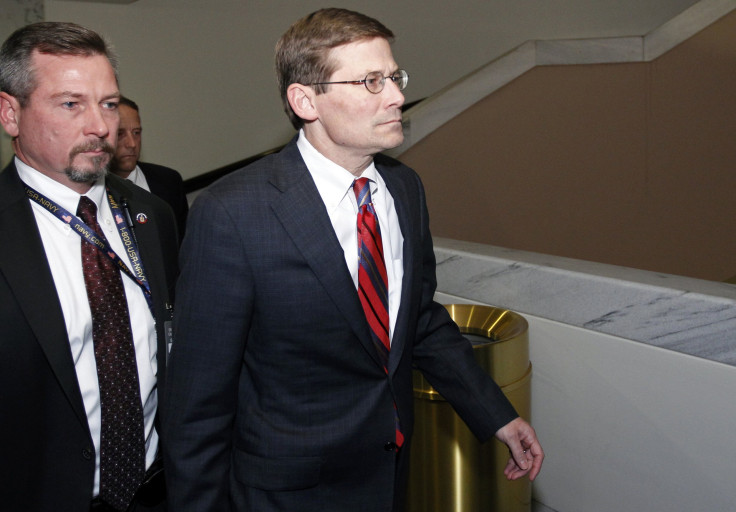Former CIA Official Michael Morell Says GOP Distorted Benghazi Intelligence In New Book

A former CIA official has accused the Republicans of distorting the agency’s analysis of the 2012 attack on the American embassy in Benghazi, Libya, in his new book. Michael Morell said the events in which the U.S. ambassador to Libya was killed were misrepresented by the GOP, dismissing claims that military and intelligence officials "were ordered to stand down" as the crisis unfolded, the New York Times reported.
He also denied allegations that the CIA and the White House had spun the story in order to protect then-secretary of state Hillary Clinton, who has come under intense scrutiny for her actions during the crisis; a congressional investigation into the matter is still underway.
However, Morell was also critical of the White House’s narrative surrounding the attack in his book “The Great War of Our Time,” which is set to hit stores next week. He said the White House blocked him from sending an internal report on the CIA’s conclusions to Congress. “I finally did so without asking,” he wrote, according to the Times, just before leaving the agency.
He was critical of the White House’s decision to air preliminary CIA intelligence on several Sunday talk shows that said the demonstrations preceded the attack -- an assessment that was later retracted. Morrell said the CIA would do well to avoid creating “talking points,” especially on issues that were co-opted for “political purposes.”
However, he concluded that the embassy attack was carried out “with little or no advance planning” and poor organization. He also cited the agency’s overall failure for the rapidly shifting political climate in the Middle East following the Arab Spring uprisings.
“There is no good explanation for our not being able to see the pressures growing to dangerous levels across the region,” he reportedly wrote, adding that the CIA had grown too dependent “on a handful of strong leaders in the countries of concern to help us understand what was going on in the Arab street,” while the leaders themselves were out of touch.
© Copyright IBTimes 2025. All rights reserved.





















